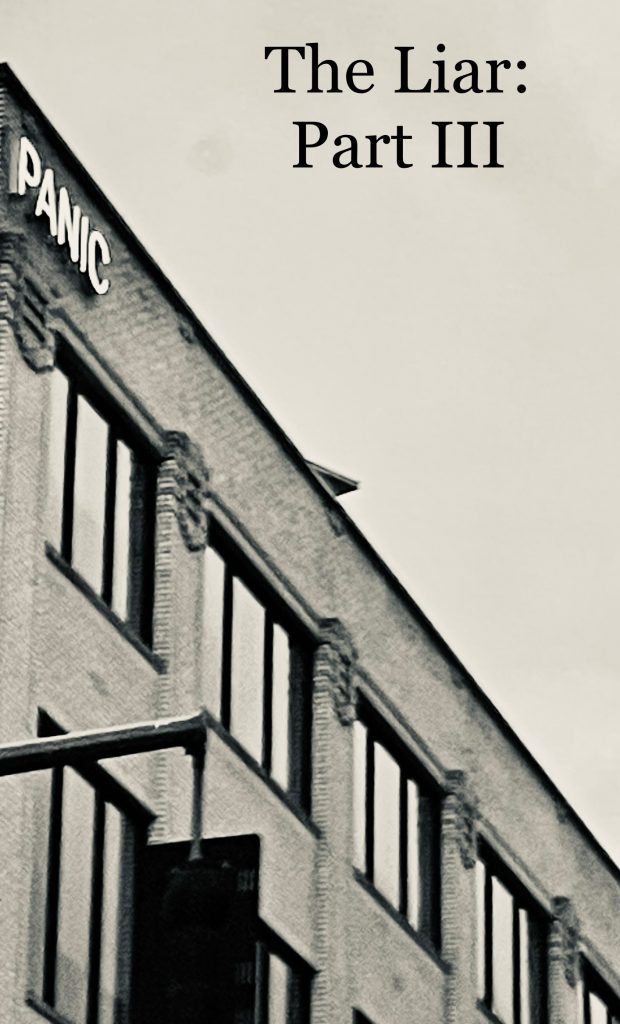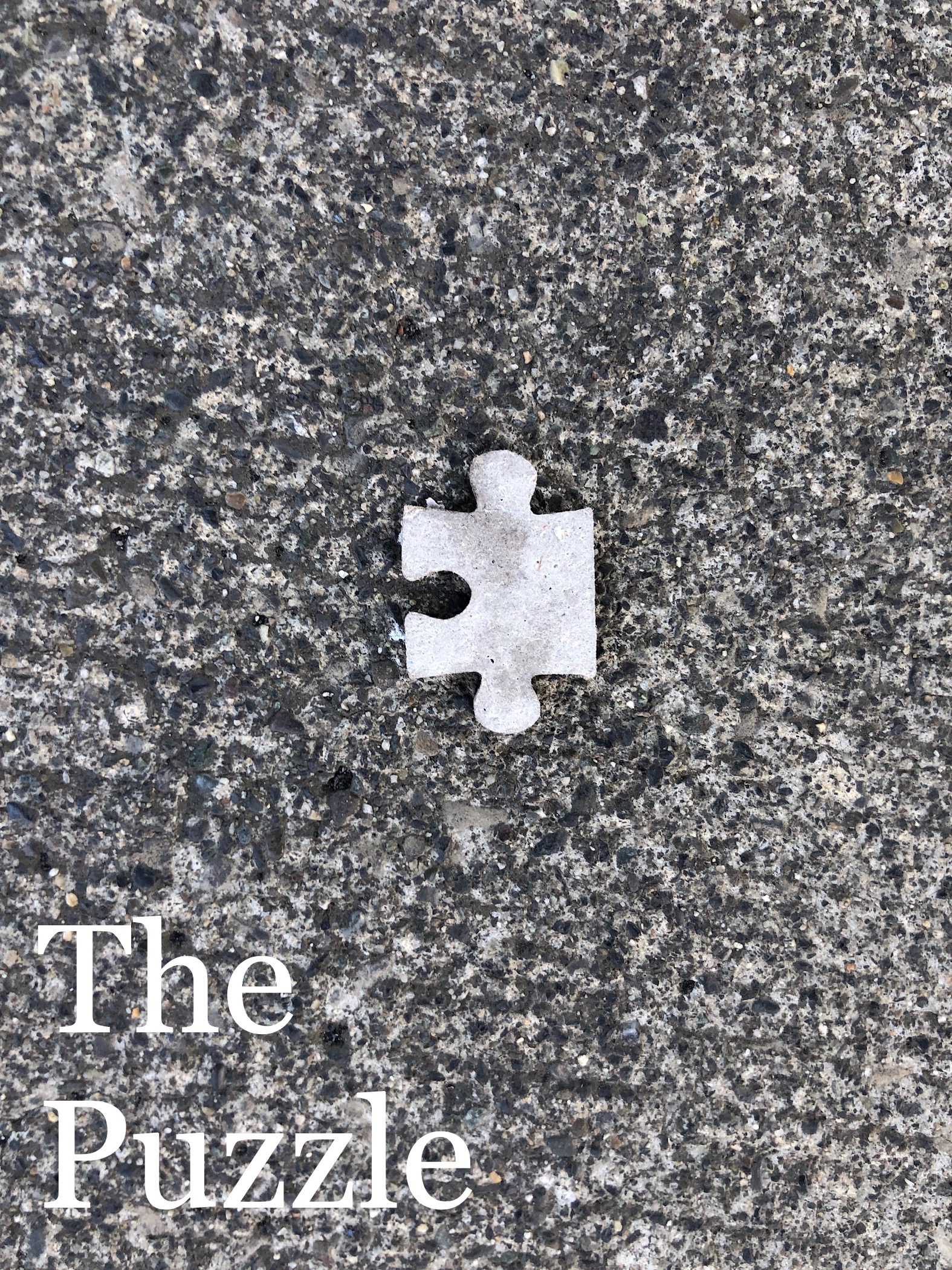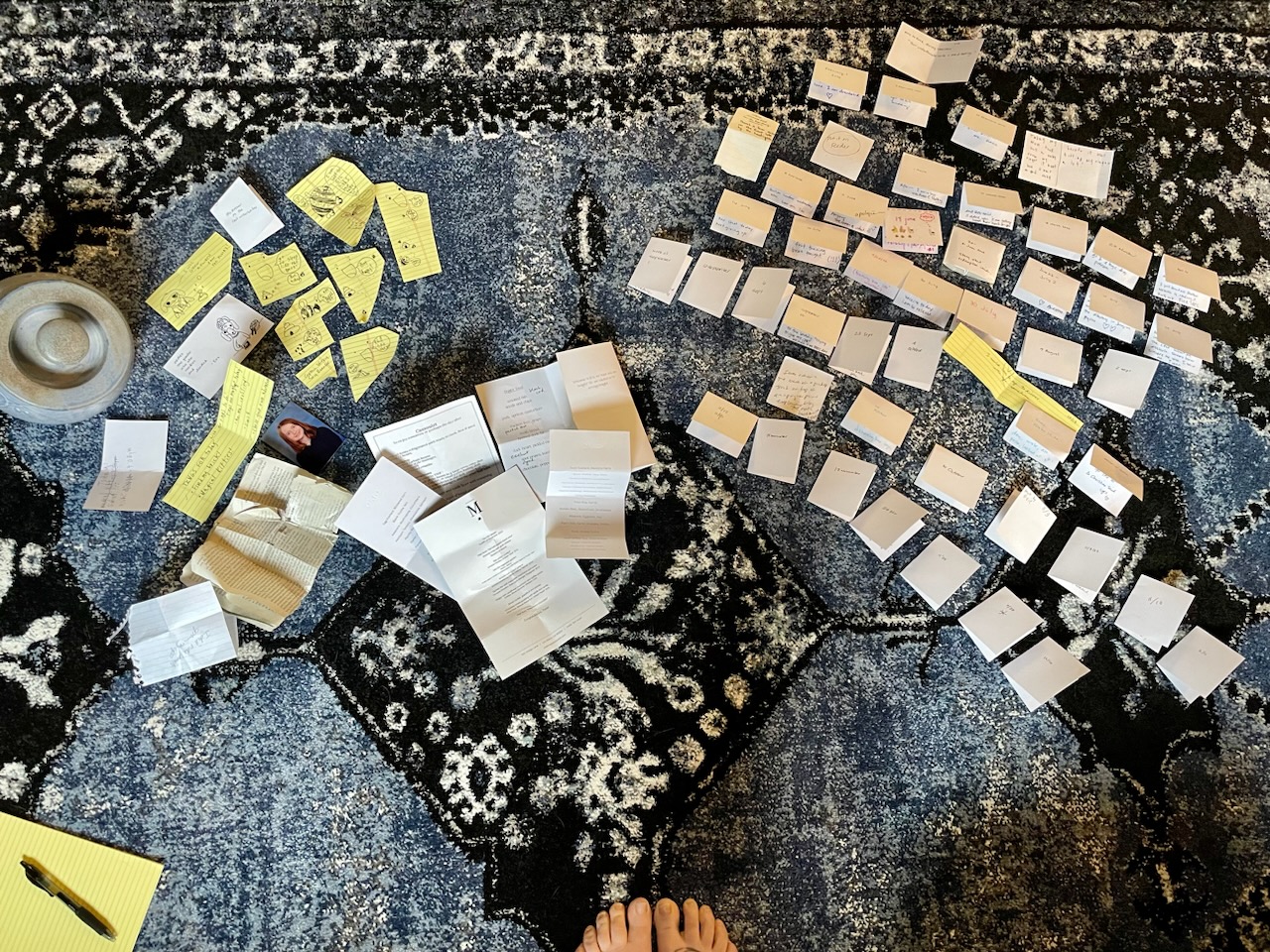Editor’s Note: I wrote this essay at the beginning of March, the morning after it happened.
We had been dating for a month. It was a night I would have made us dinner. He apologized— he had an investor meeting at one of the restaurants— but could I come over anyway? The door to his house was unlocked, and he would make it quick, and then we could spend the night together. “I’m not going to lie,” he texted me, “it is pretty wonderful being able to say I get to come home to you.”
I arrived as he was walking out the door; he kissed me and slipped a novel into my hands. He had inscribed a note inside the front cover. I switched on the light in the windowed breakfast nook just off the kitchen. I set up my laptop and notes for writing. There were white-painted, glass-faced built-in cabinets behind me. Plants on the other shelves, hanging plants, a stack of cookbooks. The cats came to visit me and rub against my legs. In and out they went through the flap in the back door; there was light in the sky behind the big maple, I watched them dart across the yard.
His old dog lay on her bed in the living room, death’s doorstep, breathing audibly. Sometimes she stood, but her legs skittered and slid from beneath her on the hardwood floor. She would not follow me outside; she was disoriented or did not know me well enough or both. When she needed to move from one bed to the other— there were two— or really whenever she stood, the big gray tomcat would march up to me meowing loudly— alert! alert!— and I followed him back to the living room, to oversee. I tried coaxing her to the yard to do her business. She would not. I knelt next to her. She cast her eyes up at me— nervously or sadly— I do not know. The first time I slept over, she cried downstairs all night, and I said in the dark at three in the morning, “It’s her time,” and he said, “Yes,” and then, “I know it’s selfish. After this job. I need time to grieve.”
I finished writing. I read the inscription in the front of the book, and the first few chapters. The sky blackened. When I looked up, I was reflected in the windows. I went to see if my toothbrush was where I had left it, on the edge of the sink. A new development, leaving it there. It was atop a cup, cross-ways. He had moved it to a better spot. In the kitchen, a white towel hung like a banner from the oven handle. In the dark, from the nook, I had not been able to fully make it out. A dog. A golden retriever. It had been mine, the towel. I had used it to wrap up that first loaf of bread— still warm—which I had baked for him as an excuse to meet him after weeks of talking to each other online. The flag of our nascent relationship. This too, he had kept.
He texted he would be home in twenty minutes. An hour later, he returned, and went straight outside, to the back yard, to take a phone call and smoke a cigarette. His dog stood on her weak legs as he passed. I rose from the sofa where I had been reading the book. The dog and I waited. The dog whined faintly, and began to relieve herself on her bed, in a long, resigned stream. I said nothing; there was nothing to say. She had been waiting for him to return home, she had been waiting to be taken out. I stood there and watched her urinate and she stood there and watched me. Then she began to lap at it. Her own urine. From shame? To clean up? I don’t know. She lapped and lapped until it was gone and then dragged herself (was it her legs or her mind that did not work, or both?) across the room to her other bed. She gagged and gakked, wheezed deeply like my grandfather when napping, and curled into a ball to sleep.
He came in from outside, exasperated. I went to put my arms around him but he stretched back away from me, looking at the ceiling, preoccupied, complaining about work. Then he looked down at his dog, and swore, and said he had forgotten to buy dog food, and gathered his keys and phone and wallet, to leave. He had just gotten home.
I said, “I’ll come with you, so you can tell me more?”
“No,” he said gently, “you stay here. I’ll be right back.”
I thought to protest but there had not been a single night where he had not made some excuse to leave, sometimes twice, and he had never once let me come with him.
Again alone in the quiet house. I said to the dog, “I’m sorry.”
I thought he must come home to see if she was still alive, and only then go and buy two more cans of dog food. Knowing she might have passed; knowing he had waited too long. To arrive with food and find her dead? The cans in his two hands not nourishment but evidence of what his own fear had accomplished.
The week before, I had seen an empty prescription bottle in the otherwise-empty bathroom trash. For alcohol or opiate addiction, a drug to stop cravings. As I left that day, I saw, outside, three empty bottles of whiskey in the recycling.
He had been careful. Whatever he was hiding he was hiding well enough. The mid-date solo errand. And two of those whiskey bottles had been half-full on his kitchen sideboard, a week apart. A reasonable timeline. Small-batch, expensive. He had said, the night I saw the first one, “Will you have a drink with me?” I pretended I could. He poured two shot glasses to the rim. And then he tapped his on the counter, like I used to, an old bar habit. I sipped too much, because I do that— yes, I had also hidden what I romantically mislabel my complicated relationship with alcohol— and I saw he had shot his. This very fancy whiskey, which even I knew I should have sipped. I looked up at him and the little bit of whiskey left in my glass, and thought, Oh no. Oh, no.
I wanted to have the whole glass back or an empty glass but there it was, visible between us, that narrow golden sliver of liquid, this promise of a different life. I swallowed the remainder. Did either of us really believe we could start fresh, put it all behind us, become different people this time? No matter. Silently, I marked the first moment in which we were both liars.
I waited for him to come home. I pleaded with myself to leave. I stayed. I prayed to say something, to say anything. I prayed, over and over: Next time, take me with you.
Author: `aqaq`
Tasia Bernie is an essayist, and editor of FeederPDX.com. She enjoys used bookstores, offal, and hard laughter. She is a very good eater. She lives with her daughter and two orange cats in Portland, Oregon.




